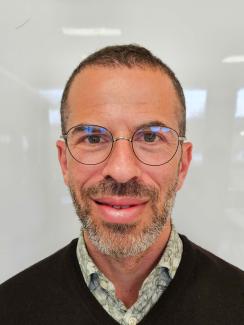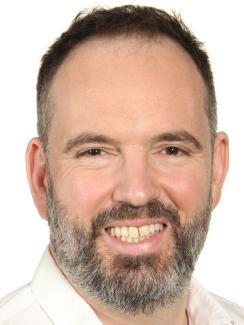Two researchers linked to the Université Paris-Saclay community awarded ERC Advanced grants
On 17 June 2025, the European Research Council announced the list of research projects to be awarded ERC Advanced grants. Two of the winning projects to receive European funding are coordinated by members of the Université Paris-Saclay community.
Patrice Bertet - ONESPIN
Patrice Bertet is a CEA physicist specialised in superconducting quantum circuits at the Service of Condensed Matter Physics (DFR/Iramis - Spec – Univ. Paris-Saclay/CEA/CNRS). He has been awarded an ERC Advanced grant for his project ONESPIN.
Magnetic resonance spectroscopy is a widely used technique for studying matter, based on the properties of paramagnetic cores and unpaired electrons. It is a cornerstone of modern science today and has various applications in condensed matter physics, materials science, chemistry, biology and medical imaging. However, the method lacks sensitivity, requiring very large sets of identical objects to detect a signal. This limits spectral resolution when samples have heterogeneous properties.
The ONESPIN project seeks to tackle this, by significantly increasing detection sensitivity to the point of detecting the spin of individual objects, using an innovative method that has recently been developed by the Quantronics group at the Service of Condensed Matter Physics at CEA Saclay. This is based on the detection of microwave photons emitted during the radiative relaxation of an individual paramagnetic centre at a very low temperature (10 mK), by a microwave photon counter, an ultra-sensitive detector based on a superconducting qubit. The efficiency of radiative relaxation is increased by the Purcell effect, caused by a superconducting resonator with submicron constriction. The project aims to demonstrate that this technique can be applied to various single paramagnetic centres, such as molecules, organic radicals or enzymes, to obtain high-resolution spectra. It also hopes to carry out a hyperfine spectroscopy and imaging of nuclear spins around these centres, which would make it possible to image individual molecules with resolution at the level of a single nuclear spin – a key goal in magnetic resonance spectroscopy. Last but not least, ONESPIN also intends to develop nanoscale magnetic resonance imaging of paramagnetic centres in a micrometre-sized sample, by combining magnetic gradients with microwave photon counting detection. The ONESPIN project is inherently interdisciplinary, using superconducting quantum technologies to achieve results which will impact chemistry and biology.
Mathieu Kociak - FreeQCC
Mathieu Kociak is a CNRS research director at the Laboratory of Solid State Physics (LPS – Univ. Paris-Saclay/CNRS). He coordinates the STEM group (Scanning Transmission Electron Microscopes), which focuses on cutting-edge electron microscopy. His research focuses on nano-optics with fast electrons, through a combination of instrumental developments, electron spectromicroscopy experiments and theoretical work on electron/matter/photon interactions. Mathieu Kociak has already won the Guinier prize from the Société Française de Physique (2002), the four-year FEI-EM prize (2012) from the European Microscopy Society and the Agar medal from the Royal Society of Microscopy (2015). His FreeQCC project has just been awarded funding by the European Research Council.
A new field of research has recently emerged at the intersection between the physics of fast electron beams and quantum coherence: fast electron quantum optics. The FreeQCC project aims to explore two fundamental problems: can a fast electron and a photon be entangled? Can we observe quantum superpositions of states in an atom using a fast electron? To answer these questions, the project will draw on recent advances in electron microscopy and nano-optics to elaborate new experiments with very high spatial, temporal and energy resolutions. The aim will be to accurately manipulate the quantum state of free electrons interacting in a quantum-coherent way with nanometric quantum systems, such as solid-state qubits. By combining theory and technological innovation, FreeQCC aims to take a major step forward in understanding the interaction between fast electrons and quantum-coherent systems
European Research Council (ERC) Advanced grants are among the most prestigious funding programmes in the European Union. They give researchers the opportunity to carry out ambitious and innovative research projects that can lead to major scientific breakthroughs. Winning projects can be awarded up to €2.5 million over a five-year period.


